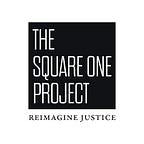Clemency for 78 People Can’t Undo What’s Happening to Millions of Americans
By Vivian D. Nixon, Writer in Residence at the Square One Project
The Biden-Harris Administration recently issued three pardons and 75 commutations, changing the lives of 78 human beings for the better. The White House also highlighted new programs that establish “a whole-of-government effort to advance employment, bolster reentry, empower formerly incarcerated persons, and strengthen our communities and our economy.”
These actions recognize “Second Chance Month,” and also respond to demands for justice reform that are driven partly by the unsustainable cost of the current system and partly by the disparate harm it causes to specific communities.
Still, to address the root causes and racially disparate harms of mass incarceration, important work is left undone and in urgent need of action by the White House and Congress.
Clemencies and increased reentry support add to recent progress aimed at undoing the American carceral state. But, despite violent crime rates being lower than they were in the 1990s, America incarcerates more people per capita than almost any other country. One out of three incarcerated people is in pretrial confinement, meaning they have not yet even been convicted of a crime. Black, native, migrant, and transgender people are disproportionately represented at all points of entry to the justice system and in every kind of surveillance and confinement.
These disparities raise a red flag, signaling the endurance of ideologies that treat whole categories of people as problematic. Whether the outcomes are intentional or not, the consequences are real. Even the 78 individuals who were liberated by Presidential forgiveness will face a lifetime of hurdles as they return to communities that are targets of aggressive policing, prosecution, and punishment.
The history of oppression in America is unquestionably violent and extends from modern-day mass incarceration back to the origins of our nation. Some of my ancestors were born free and died enslaved. Control of their liberty was essential to the economy that made America a global symbol of prosperity and opportunity. The financial implications of abolishing slavery frightened slaveholders; as the threat of civil war loomed, slave patrols emerged.
The business of slave catching became increasingly lucrative and violent. When the South lost, backlash in the form of white rage swept the nation terrorizing Black people and their descendants in brutal ways. Acts of terror, including lynching, were often made legal as punishment for certain crimes under state law. This is not ancient history. Legalized acts of physical and psychological violence against Blacks persisted until the Civil Rights Act was passed only 58 years ago.
Voter suppression, conviction by non-unanimous juries, and other vestiges of Jim Crow remain a threat in some states. These are facts of history. The alternate version is a preposterous fairy tale. Slaves were not treated like family members. They were not happy and carefree. Slave owners did not willingly liberate their property when the Civil War ended and emancipation was proclaimed.
The wars on crime, welfare, and drugs were justified as fights for “public safety” or “rehabilitation” — yet they were actually based on deep-rooted links to the ideologies of nationalism and white supremacy. As a result, the current justice system poses a continuing threat to the safety of Black, native, and migrant communities. Our leaders must attack these ideologies with the same vigilance applied to so-called wars that have so harmed these communities.
Surveillance and imprisonment and the scars they leave behind are familiar to me.
I am a twice-convicted non-violent class D felon with charges that still carry a minimum sentence of four to seven years in prison for those convicted today. At the height of the drug war, I was confined or supervised for more than 10 years. Twenty years have passed. By choice and by mandate, privately and on the public stage, I have checked yes to the felony box on applications for housing, employment, education, and banking, and have raised my hand in solidarity when polled about felony status in group settings. To honor my ancestors who modeled resilience without acquiescence, I write as a practice of speaking truth to power, respecting the dignity of every human, and collaborating with all who will work to build a society worthy of its democratic ideals.
To be sure, the Biden-Harris Administration should be recognized for expanding the use of pardoning power and investing in systems that will help those pardoned and all people with felony convictions build aspirational lives upon release. However, policing, prosecution, and imprisonment in the United States remain imbued with structural bias, and racial identity is commonly associated with danger and criminality in the absence of evidence.
Our nation’s failure to confront its larger demons does not inspire optimism. Nevertheless, I am compelled to follow the ancestral traditions of freedom fighters who spoke truth to power with a measure of hope in the goodness of other people.
The whole-of-government approach to reentry services must be met with an equal commitment to sustained truth-telling. Our ideas about public safety need to consider the realities of a changing world and the benefits of embracing a passionately and joyfully diverse America.
President Biden is willing to mobilize the whole-of-government to address the challenges of reentry. Let’s spread that approach across the whole-of-the-challenge, including the need to elucidate and eradicate the hidden influence of white supremacist ideology in all social policy.
